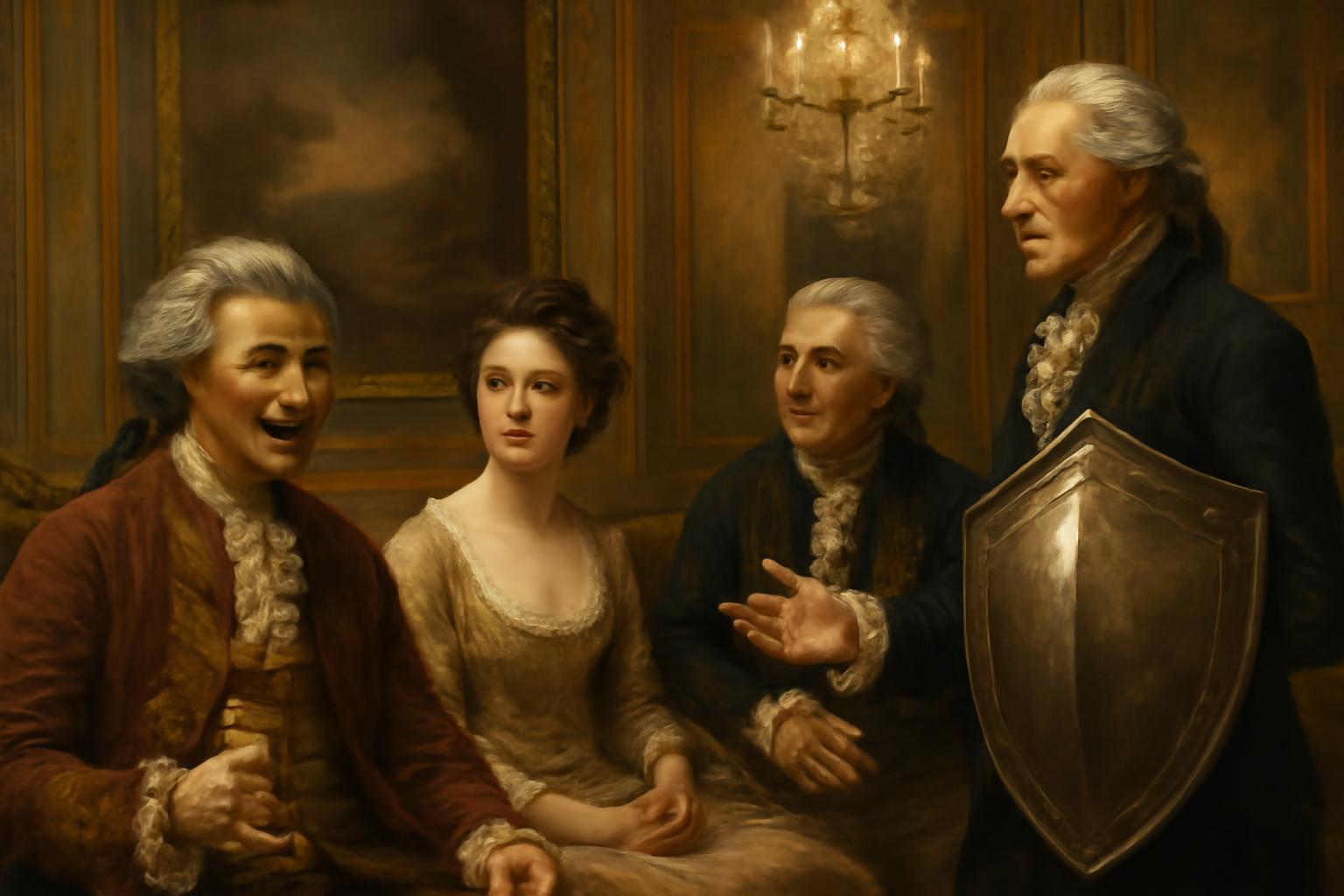A glittering Washington salon assembled a veritable parade of statesmen to discuss Ukraine, led by the host who has mastered the art of turning press conferences into policy. President Trump convened a high-level roundtable that included Ukrainian President Zelensky, EU Commission President von der Leyen, NATO’s secretary-general in title only (and a few European sovereigns in their most ceremonial attire), and a lineup of European leaders. The crowd dissected a possible ceasefire as a cornerstone of credible talks, urging the United States and Europe to press Russia. Trump said he wouldn’t rule out a ceasefire, but warned there are many points to consider and, in a bilateral with Zelensky, even suggested deals might be worked out “while they’re fighting.” Starmer spoke of guarded optimism about Western security guarantees for Ukraine and floated the notion of a trilateral meeting pairing Trump, Zelensky, and Putin as a likely next chapter. Macron chimed in that a trilateral format is essential and that any enduring peace would require broader security arrangements, potentially followed by a four-way discussion to address the continent’s overall security. After the public phase, the talks moved to more informal settings, while Zelensky, arriving with hopes for a durable peace, thanked Trump for his efforts. Trump wandered through various topics but reaffirmed his aim to end the war and pledged strong protection for Ukraine, underscoring ongoing debates about security guarantees — including the tantalizing but vague prospect of a NATO-like pledge floated by the U.S. government.
If one is inclined to dignify this as anything more than a public-relations crescendo, one must concede it is exceptionally well-produced theater. Here we have a roomful of individuals who command currencies, headlines, and the gravity of their offices, all batting around “ceasefire,” “security guarantees,” and “architecture” as if these phrases were architectural drawings rather than precarious compromises. A ceasefire, in their vocabulary, sounds almost as definitive as a contract, yet the reality is that ceasing fire without a clear, enforceable settlement is a stopgap masquerading as strategy. The insistence by Merz on a ceasefire to make negotiations credible reads to me like insisting on a pause button when the orchestra is playing the finale—noble in sentiment, mortifying in execution.
And what of the trilateral fever dream—Trump, Zelensky, and Putin? It is the stuff of salon fantasies: a grandiose mechanism to “resolve the difficult questions” by inviting the very party whose actions necessitated the discussion in the first place. The European gentlemen imagine that arranging a three-way tête-à-tête with the aggressor’s avatar can crystallize a durable security order; I, for one, suspect this is more about projecting decisive leadership than about delivering decisive outcomes. Macron’s insistence on broader security arrangements and a possible four-way forum is less audacious than prudent, yet I question whether such arrangements can be cobbled together from verbatim pledges if the underlying deterrence—the real currency of peace—remains unbolted.
Then there is the rhetoric of “strong protection for Ukraine” and the flirtation with a NATO-like guarantee. Words are currency in international affairs, but they are not treasuries in which credit is granted without collateral. If the West wishes to safeguard Ukraine, it must deliver more than the sensation of solidarity; it must deliver credible, enforceable guarantees supported by capabilities, resolve, and a willingness to bear costs. Until these guarantees are anchored in tangible commitments—material, economic, and strategic—the grand vow of protection risks becoming another exquisite rumor whispered in a room dripping with chandeliers.
In the end, the spectacle may reassure the anxious that leadership remains present, that negotiations are being pursued, and that Europe’s security is still a topic of life-and-death concern. But let us not mistake the glitter for governance. If lasting peace is to emerge from this assembly, it will require clarity about victory terms, a credible and enforceable security framework, and a level of strategic resolve that few of these attendees possess when their own interests, rather than the contest before them, are on the line. Until then, this is the rarefied air of aristocratic diplomacy: eloquent, expensive, and ultimately dependent on how hard someone is willing to work when the applause dies down.
